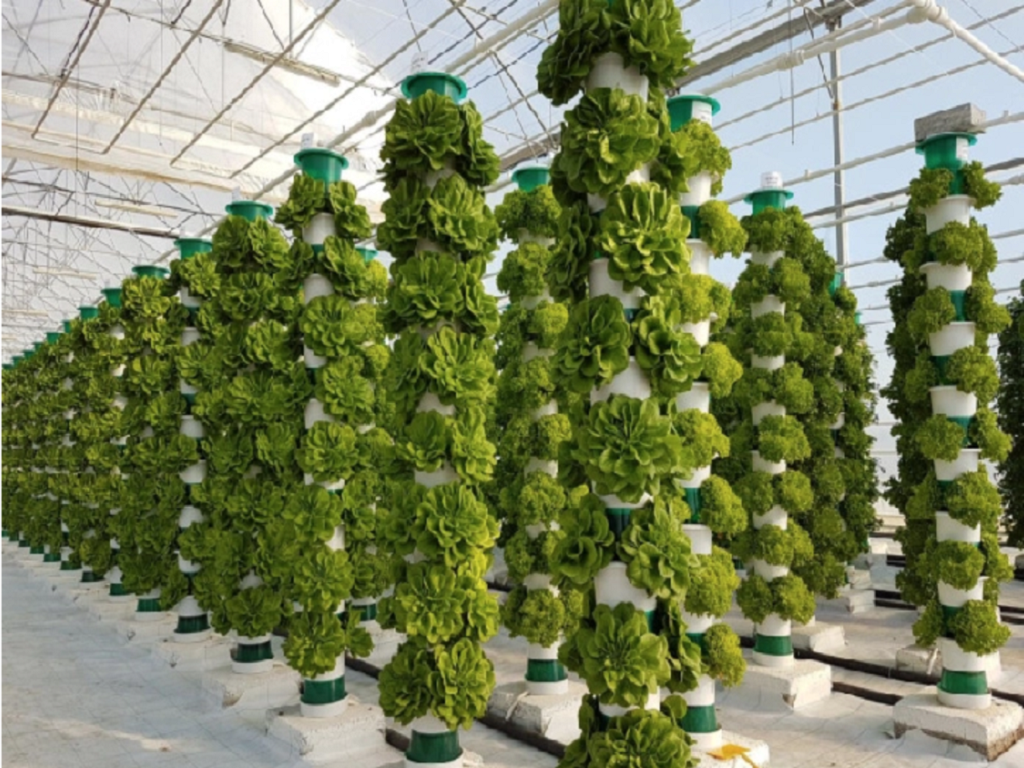
By investing in vertical agriculture, Walmart, the world's largest retailer, is pushing vertical integration to a new level. Yes, the retailer, which already has its bank, is venturing into farming. It's significant for them, or at least for vertical agriculture.
Walmart, which employs two million people, recently acquired a share in Plenty Unlimited as part of a $400 million round of funding, granting it a place on Plenty's board of directors – and at the farm table.
Walmart is relying on vertical agriculture, claiming that it can supply "the freshness and quality that Walmart customers expect year-round."
Vertical Farming Statistics
Vertical agriculture is bringing farms to cities and towns. Farms are being established with addresses in major new agricultural capitals such as, well, Chicago, Baltimore, and New York City. Even when some store racks go bare, other businesses are turning to vertical farming as a solution.
Don't be so confident if you think farming is more about the land than technology. According to Finistere Ventures' 2020 AgriFood Tech Investment Review, there is more money flowing into high-tech farming. In 2020, global investment in agrifood tech companies is expected to reach $22.3 billion, with $5 billion in agtech and $17.3 billion in food tech. Finistere anticipates that 2021 will surpass that record year as farming technology advances.
"We expect 2021 to outperform 2020 as funding continues to pour into technology categories with absolutely tremendous disruption potential, such as indoor agriculture..." according to Arama Kukutai, co-founder and partner of Finistere Ventures.
How environmentally friendly is this company? According to Fortune Business Insights, the worldwide vertical farming industry was worth $3 billion in 2020 and is predicted to be worth $3.6 billion in 2021 and $17.6 billion by 2028. However, when money comes in, this might be a drop in the bucket.
"With the expanding population and continuous advances in global food markets, options for more robust crop production must be brought closer to urban areas," according to Fortune Business Insights, which views vertical farming as part of "a viable agricultural solution."
Vertical Farming is on the Rise
All of this is resulting in initial funding for start-ups as well as investments by corporations such as Walmart. According to the Associated Press, at least 74 indoor farming enterprises were launched in 2020, according to consulting firm Agritecture. Companies are expanding their market share, not only their product offerings.
Gotham Greens, which has 500,000 square feet of greenhouse space, claims to utilize 95% less water and 97% less land than typical farms, conserving energy and waste.
When it comes to farming, other businesses are on the rise. According to TechCrunch.com, Brooklyn-based Upward Farms intends to create a 250,000square-foot vertical farm in Northeastern Pennsylvania. It will cultivate microgreens, which TechCrunch.com described as "a popular choice for indoor gardening due to its versatility and reduced space needs."
Green Thumb to Investment in Vertical Farming
Investors are testing their green thumbs in the hopes that vertical farming will pay returns. According to Fortune Business Insights, McCain Foods announced a "significant investment" in Truleaf Sustainable Agriculture, a Canadian vertical agriculture company, in February.
Meanwhile, Walmart is experimenting with farming by investing in it. Could Walmart be wrong? It's always possible, but the corporation didn't get this far by making so many bad investments. Could this be the start of something greater as firms bet (on) the farm?
According to the firm, "Walmart is the first big U.S. retailer to aggressively engage in vertical farming," and it is collaborating with plenty "to bring fresh produce to Walmart retail stores." Oh, and if everything goes well, it may also help investors profit.










